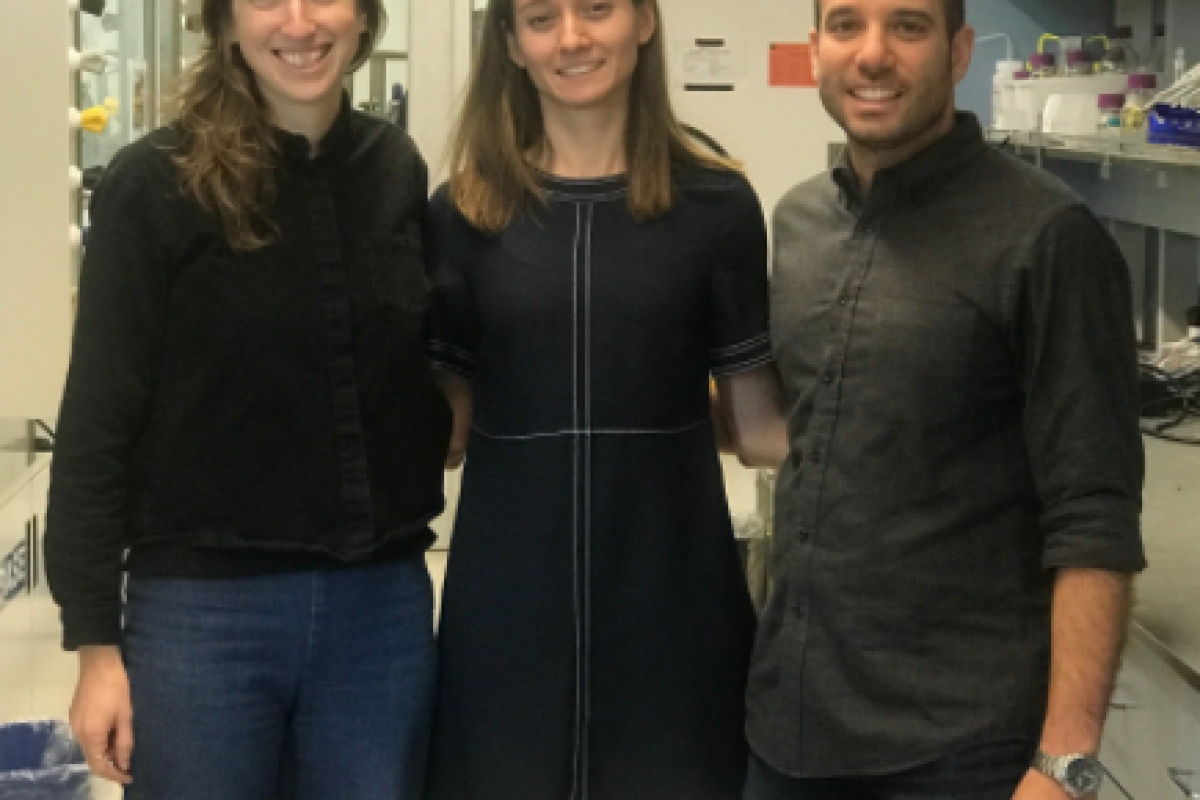This story is part of an ABE series on data science in biotechnology. Read the overview story and then a profile of Marvin Gee.
"When one door is closed or seems closed, there might be another door open around the corner, and that's what you have to look for—another opening to maybe get you back around or on track to what you want to pursue."
— Nicole Schnabel
After getting a master’s degree in biomedical engineering from New York University (NYU) in 2019, Nicole Schnabel took a job at the biopharmaceutical company Johnson & Johnson as a manufacturing engineer. Within a short time, she realized the importance of data analytics, and she soon transitioned to a new role in global product strategy analysis. Now, data science is part of Schnabel’s everyday workflow.
At Johnson & Johnson, Schnabel uses her manufacturing and engineering background with data analytics to manage and optimize the supply chain—all the different parts that go into bringing products to market. “Data analytics spans so many different fields and applications,” she says. “Supply chain, which is an important branch of engineering, is driven by data analytics to ensure we optimize every single connection point. I am focused on ensuring the data quality meets and exceeds organizational expectations.”
Having a strong foundation of data within an organization is critical, Schnabel says. One example she points to is in storing products in warehouses. “We need to ensure that we are sharing correct product specifications to our customers to promote maximized storage capabilities,” she explains. “Some recipients highly value their warehouse space and can even impose penalties on the organization if the data are not correct or fall out of certain ‘spec’ [specification] ranges.”
Data analytics has always been a part of Schnabel’s educational and career paths, she says, though her start in science and biotechnology was at a summer camp in high school through Pennsylvania State University (Penn State). “It was a camp fusing science and leadership, and it really inspired me to see how science plays such an important role in our everyday lives,” she says. One important set of skills she learned was in working with a team: “I had the chance to do a lot of team building exercises, and at that time, I don't think I realized the importance of these skills, yet in my current role I am using many of the basic skills that I learned years prior.”
After high school, Schnabel studied chemical and biomolecular engineering at New York University (NYU), and spent a summer as an Amgen Scholar at Kyoto University in Japan, where she worked on cancer vaccines. “In school, I used a lot of data analytics for my experiments for aggregating data, interpreting results, and drawing conclusions,” she says. Through those experiments, she learned how to use data from previous experiments to better inform future ones. “A failed result in an experiment is never really a failure,” she says, “but rather insight as to what doesn't work.”
Later, in grad school at NYU, she studied materials called photocatalytic hydrogels and created a startup called Hydract, with the aim of using these materials to create a portable water treatment system. “I used data analytics for my startup, performing market analysis and analytics into how my product compares to my competitors,” she explains.

It is important to remember, Schnabel says, that data science is not just programming; it can involve a variety of tools: “When I started in school, I used basic Excel, then I progressed towards building Macros in Excel, and now I have opportunities to use more advanced tools such as Tableau and Alteryx,” she says. “These types of tools are much easier to implement and have a more user-friendly platform. This definitely circles back to how fluid data science is as it can encompass many different skill sets for execution.”
In the future, Schnabel says that data analytics will continue to transform organizations in biotechnology and beyond: “Finding ways to take core principles yet apply new and innovative technologies, such as AI and machine learning, will enable us to take biotech and science to a whole new level.”
Schnabel’s biggest piece of advice to students is to “have a plan, but definitely don't close yourself off to it,” she says. “Something my mom taught me very early on is when one door is closed or seems closed, there might be another door open around the corner, and that's what you have to look for—another opening to maybe get you back around or on track to what you want to pursue.”
